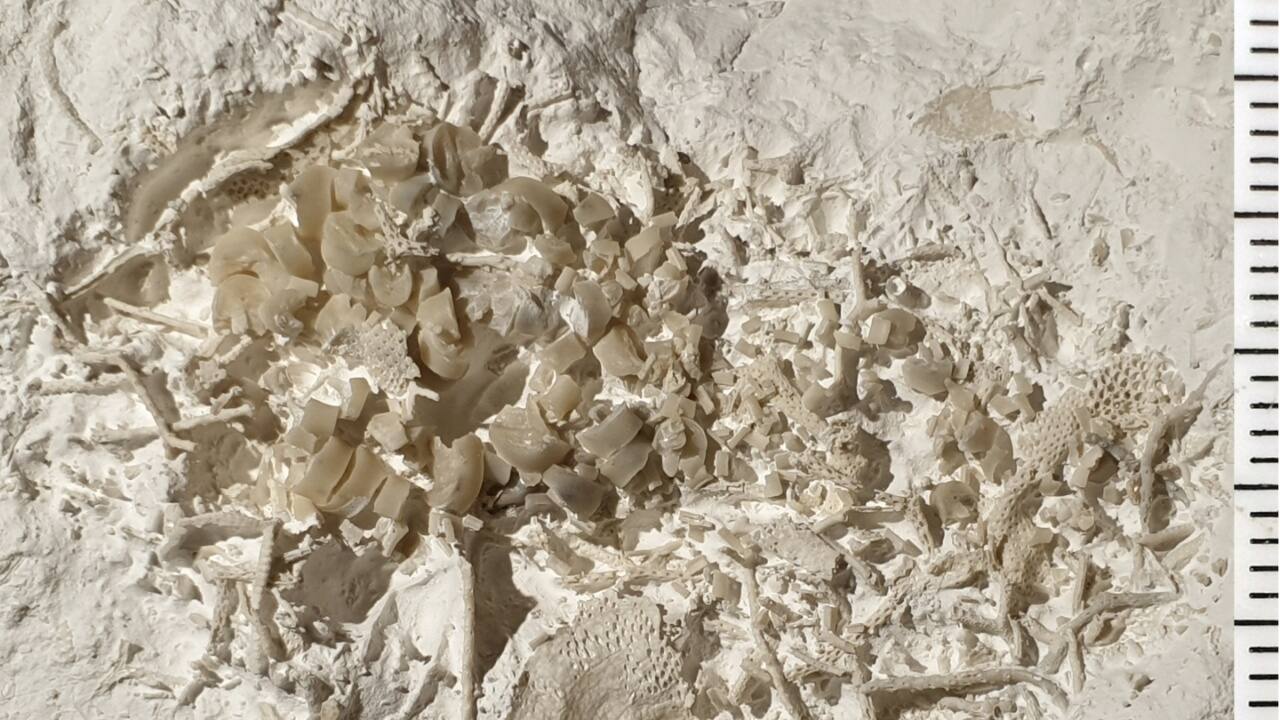



A piece of fossilised vomit, dating back to when dinosaurs roamed the earth, has been discovered in Denmark, the Museum of East Zealand said on Monday.
The find was made by a local amateur fossil hunter on the Cliffs of Stevns, a UNESCO-listed site south of Copenhagen.
While out on a walk, Peter Bennicke found some unusual fragments, which turned out to be pieces of sea lily, in a piece of chalk. He then took the fragments to a museum for examination, which dated the vomit to the end of the Cretaceous era some 66 million years ago -- when dinosaurs roamed the earth.
According to experts, the vomit is made up of at least two different species of sea lily, which were likely eaten by a fish that threw up the parts it could not digest.
 A regurgitated clump of sea lily fragments from at least two different species of sea lilies that were eaten during the Cretaceous period 66 million years ago. (Image credit: AFP)
A regurgitated clump of sea lily fragments from at least two different species of sea lilies that were eaten during the Cretaceous period 66 million years ago. (Image credit: AFP)
"This type of find... is considered very important when reconstructing past ecosystems because it provides important information about which animals were eaten by which," the museum said in a press release.
Paleontologist Jesper Milan hailed the discovery as "truly an unusual find", adding it helped explain the relationships in the prehistoric food chain.
"Sea lilies are not a particularly nutritious diet, as they consist mainly of calcareous plates held together by a few soft parts," he said. "But here is an animal, probably some kind of fish, that 66 million years ago ate sea lilies that lived at the bottom of the Cretaceous sea and regurgitated the skeletal parts."
Last November, researchers shared how some 200-million-year-old vomit and fecal samples of dinosaurs were helping them recreate how these giants became the kings of a prehistoric ecosystem. The findings, detailed in a study published in the journal Nature, stated that bones, teeth, fish scales, plant fragments, and even tiny beetles, were found in the samples which gave scientists "a unique glimpse into ancient diets.”
“The most surprising aspect was discovering how well-preserved and diverse the food remains inside the fossilised droppings and vomits,” Martin Qvarnström, a study co-author and a paleontologist at Uppasala University in Sweden, told Popular Science.
(With inputs from AFP)
Discover the latest Business News, Sensex, and Nifty updates. Obtain Personal Finance insights, tax queries, and expert opinions on Moneycontrol or download the Moneycontrol App to stay updated!
Find the best of Al News in one place, specially curated for you every weekend.
Stay on top of the latest tech trends and biggest startup news.